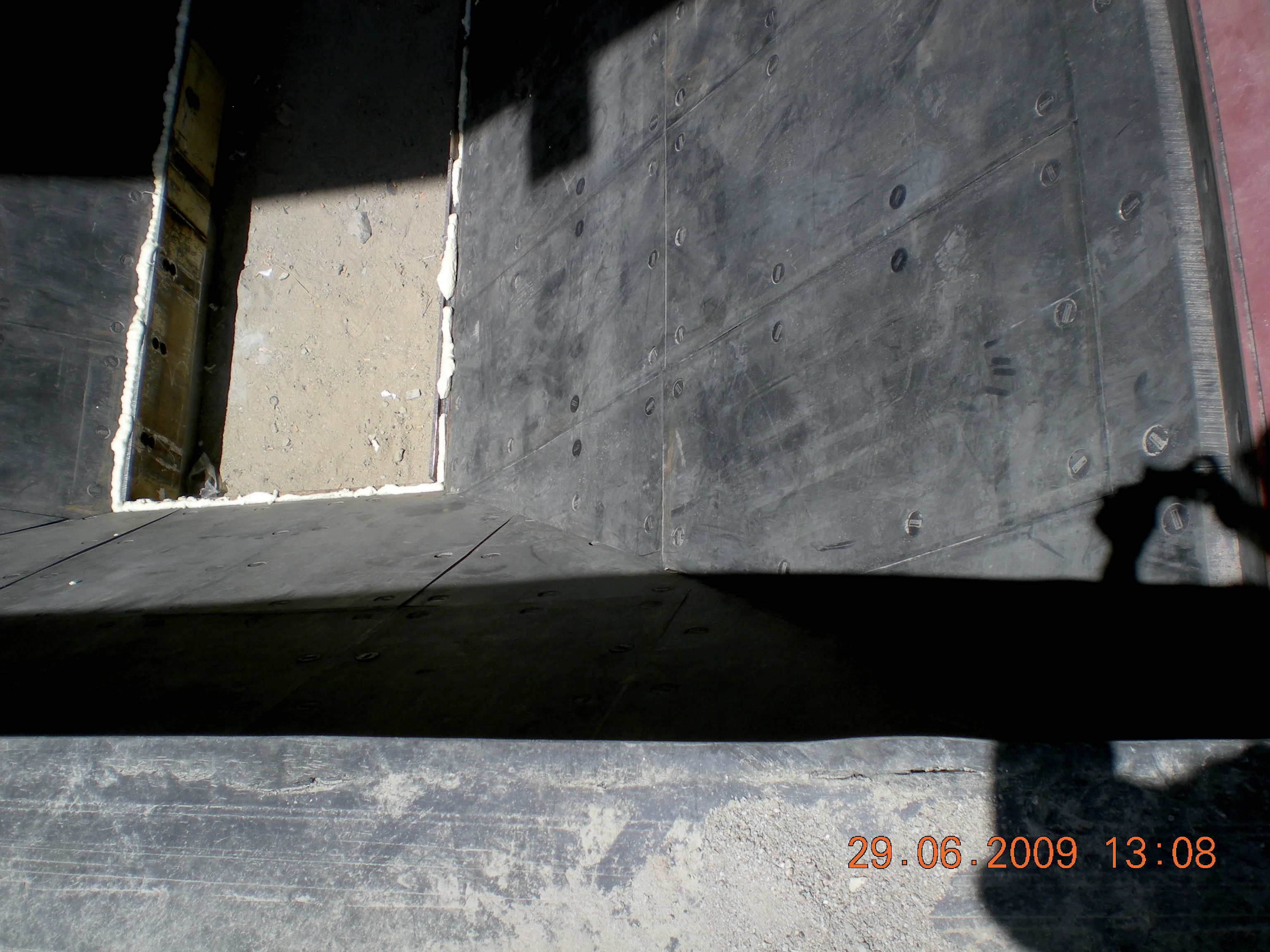German quarrying firm Oetelshofen Kalk has cut noise emissions by half and tripled machine service life, by installing dual hardness rubber liners in its crushing plant. Based in Wuppertal, the Oetelshofen quarry company produces 2 million tonnes of limestone products/year, and has a turnover of €35 million/year.
February 7, 2012
Read time: 2 mins

German quarrying firm 2350 Oetelshofen Kalk has cut noise emissions by half and tripled machine service life, by installing dual hardness rubber liners in its crushing plant. Based in Wuppertal, the Oetelshofen quarry company produces 2 million tonnes of limestone products/year, and has a turnover of €35 million/year. Investment in equipment such as the new liners and the latest firing technology has been high with the firm keen to maximise output and operating efficiency, as well as reducing environmental impact.
The company used the WT7000 dual hardness rubber wear plates from325 Sandvik for lining the 6m² feed hopper of a kiln. This modular system reduced noise emissions by 50% and six months later the company decided to equip its new 120m² hopper with the same type of rubber linings. A major challenge however was to choose the right material for the hopper, which is designed for a capacity of 500,000tonnes/year of limestone. The hopper requires a heavy duty lining as it is loaded by a 60tonne capacity truck, with a product size of up to 140mm.
The solution was to install 1,500 pieces of 50mm thick rubber liners mounted with welding studs. This has proved to be a particularly attractive solution as when the sharp edged stone wears out each plate these 300x300mm units can be replaced quickly. This patented modular system has protected the base of the hopper against cracks and deformation, retaining its original shape. In addition the liner lip protects against fines ingress between the gaps, while the service life is tripled.
A further benefit is environmental as the quarry is also home to a protected bird species, the European Eagle Owl. It has the largest population of these birds in Europe and due to the reduced noise from the plant, this will further aid breeding. Due to the success of the installation and the performance improvements, Oetelshofen is now considering using Sandvik wear protection at the limestone quarry for all its future plans. Discussion are already ongoing at the site involving product and material testing, with new applications such as lining truck boxes or using ceramic/rubber wear protection liners.
The company used the WT7000 dual hardness rubber wear plates from
The solution was to install 1,500 pieces of 50mm thick rubber liners mounted with welding studs. This has proved to be a particularly attractive solution as when the sharp edged stone wears out each plate these 300x300mm units can be replaced quickly. This patented modular system has protected the base of the hopper against cracks and deformation, retaining its original shape. In addition the liner lip protects against fines ingress between the gaps, while the service life is tripled.
A further benefit is environmental as the quarry is also home to a protected bird species, the European Eagle Owl. It has the largest population of these birds in Europe and due to the reduced noise from the plant, this will further aid breeding. Due to the success of the installation and the performance improvements, Oetelshofen is now considering using Sandvik wear protection at the limestone quarry for all its future plans. Discussion are already ongoing at the site involving product and material testing, with new applications such as lining truck boxes or using ceramic/rubber wear protection liners.








